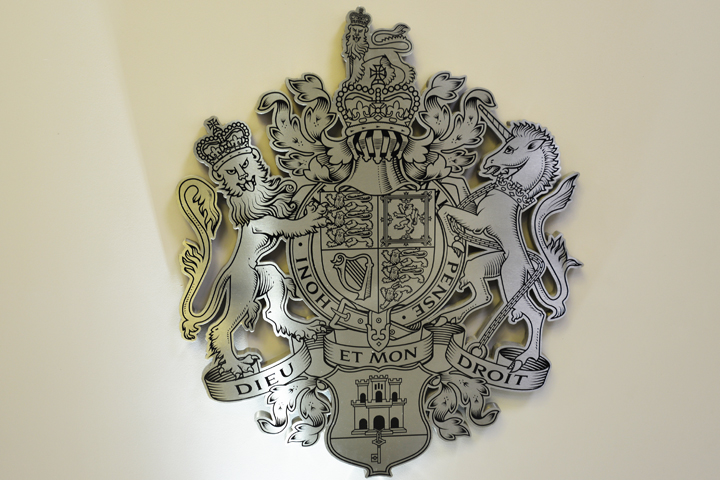Sep 29 - Certified Energy Auditor Training Course To Be Offered At New University
 The Government says it is continuing its efforts to reach the EU target of improving its energy efficiency by 20% by 2020; as part of the Energy Efficiency Directive (EED). The EED establishes a set of binding measures to help EU countries reach this target. Energy audits form part of this initiative to increase energy efficiency and reduce energy consumption. Improving energy efficiency can deliver a range of benefits to the economy and to society. More efficient use of energy results in energy and monetary savings, and reduces greenhouse gas emissions which helps the environment.
The Government says it is continuing its efforts to reach the EU target of improving its energy efficiency by 20% by 2020; as part of the Energy Efficiency Directive (EED). The EED establishes a set of binding measures to help EU countries reach this target. Energy audits form part of this initiative to increase energy efficiency and reduce energy consumption. Improving energy efficiency can deliver a range of benefits to the economy and to society. More efficient use of energy results in energy and monetary savings, and reduces greenhouse gas emissions which helps the environment.
The Department of the Environment and Climate Change is therefore providing the opportunity for eligible individuals to undertake training to become accredited Energy Auditors under the Government of Gibraltar Accreditation Scheme, for the purposes of carrying out energy audits in line with the EED.
An ‘energy audit’ refers to a systematic procedure with the purpose of obtaining adequate knowledge of the energy consumption profile of a building or buildings, or an industrial or commercial operation, or a private or public service; identifying and quantifying cost- effective energy savings opportunities, and reporting the findings.
Energy audits are an essential tool to achieve savings. They are necessary to assess the existing energy consumption and identify the whole range of opportunities to reduce energy use and energy waste. An energy audit results in a proposal of energy efficiency measures for management, public authorities or home owners. Furthermore, energy audits allow for the identification and prioritization of opportunities for improvement. In this manner, energy audits tackle the information gap that is one of the main barriers to energy efficiency.
The results of an energy audit may be, for example, a recommendation for window replacement in a household, for insulation in a factory, or for setting up a comprehensive energy management system in a commercial building, among other recommendations.
The Certified Energy Auditor (CEA) Training programme covers numerous key topics including: energy audit and audit approach, energy fundamentals, benchmarking and energy accountancy, energy auditing instrumentation, data analysis, energy financials, air conditioning systems and refrigeration, facilities and lighting systems, electrical systems, motors and drives, alternative financing and measurement and verification, hot water and steam boilers and distribution systems, compressed air; pumping and industrial processes, commissioning and maintenance, water conservation and water auditing and structured energy management programs and ISO 50001.
A number of pre-requisites are required in order to sit the course as laid down by the Association of Energy Engineers (AEE). Please contact the Department for further details on these requirements.
Certified Energy Auditor (CEA) Certification would be achieved by candidates who meet the necessary qualifications and experience, complete the course and attain the required examination mark. Those candidates not possessing the required experience at the time of the course and examination and who attain the required examination mark would receive the Certified Energy Auditor in Training (CEAiT) Certification.
Course duration is 5 days, concluding with a 4 hour open book examination. The course will be held from the 16th to the 20th of November at the University of Gibraltar.
The course fee is £699. This includes lunch, examination fee and textbook, ‘The Guide to Energy Management Handbooks, International Version.’
Further details can be obtained from the Department of the Environment and Climate Change at [email protected] or Tel no. 200 48450.
Please note places are limited and applications must be in by no later than midday Wednesday 14th of October.
{fcomment}
Latest News
- Giovanni Origo Budget Speech 2025 - GSD Shadow Minster for Youth, Tourism, the Environment and Transport
- Budget 2025 Speech by Minister for Industrial Relations, Civil Contingencies and Sport, Leslie Bruzon
- HM Customs Gibraltar Launches ASYCUDA Version 4.4 to Modernise Border Management
- Budget 2025 Speech by Minister for Equality, Employment, Culture and Tourism Christian Santos
- Declaration Of Enlistment By Royal Gibraltar Police Recruits
- Local Actors Travel To UK Drama Festival
- Bridge House Charitable Trust Welcomes Donations
- GSD Says Principal Auditor Report 2018/19 Should Now Emerge
- The Budget 2025 – Minister Gemma Arias-Vasquez's Address
- Ministry Of Equality Marks Successful End Of The Sixth Cycle Of The Women’s Mentorship Programme



